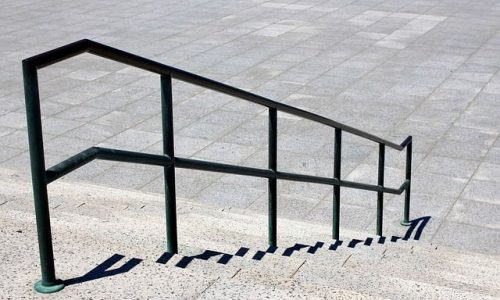Meaning: Expressing existence, location, and movement English: in, at, on, to
Formation:
Noun + に
(1)-(4)LOCATION OF EXISTENCE
(6)-(8)Direction and Destination
日本語 / にほんご / Japanese
(1) 引き出しの中に手紙がある / あります。
(2) 花は花瓶に入っている / 入っています。
(3) 私の猫は隣の部屋にいる / います。
(4) 祖父母は京都に住んでいる / 住んでいます。
(5) 月曜日、農家は家に帰る / 帰ります。
(6) 来年、私の孫は学校に行く / 行きます。
(7) 今年、大工はイギリスに行く / 行きます。
(8) 今週、祖母はデパートにでかける / でかけます。
ことばと表現 / Words & Expressions
引き出し【ひきだし hikidashi】drawer
中【なか naka】inside
手紙【てがみ tegami】letter
花【はな hana】flower
花瓶【かびん kabin】vase
入る【はいる hairu】to enter, to be in
隣【となり tonari】next to
部屋【へや heya】room
祖父母【そふぼ sofubo】grandparents
京都【きょうと kyouto】Kyoto
住む【すむ sumu】to live
月曜日【げつようび getsuyoubi】Monday
農家【のうか nouka】farmer
孫【まご mago】grandchild
今年【ことし kotoshi】this year
大工【だいく daiku】carpenter
イギリス【いぎりす igirisu】England, Britain
祖母【そぼ sobo】grandmother
デパート【でぱーと depaato】department store
でかける【でかける dekakeru】to go out
英語 / えいご / English
(1) There is a letter in the drawer. / A letter is in the drawer.
(2) The flower is in the vase. / The flower is put in the vase.
(3) My cat is in the next room. / My cat is in the neighboring room.
(4) My grandparents live in Kyoto. / My grandparents are living in Kyoto.
(5) On Monday, the farmer goes home. / The farmer will go home on Monday.
(6) Next year, my grandchild goes to school. / will go to school.
(7) This year, the carpenter goes to England. / will go to England.
(8) This week, grandmother goes out to the department store. / will go out.
ひらがな / Hiragana
(1) ひきだしの なかに てがみが ある / あります。
(2) はなは かびんに はいっている / はいっています。
(3) わたしの ねこは となりの へやに いる / います。
(4) そふぼは きょうとに すんでいる / すんでいます。
(5) げつようび、のうかは いえに かえる / かえります。
(6) らいねん、わたしの まごは がっこうに いく / いきます。
(7) ことし、だいくは いぎりすに いく / いきます。
(8) こんしゅう、そぼは でぱーとにで かける / でかけます。
ローマ字 / Roman characters
(1) Hikidashi no naka ni tegami ga aru / arimasu.
(2) Hana wa kabin ni haitte iru / haitte imasu.
(3) Watashi no neko wa tonari no heya ni iru / imasu.
(4) Sofubo wa kyouto ni sunde iru / sunde imasu.
(5) Getsuyoubi, nouka wa ie ni kaeru / kaerimasu.
(6) Rainen, watashi no mago wa gakkou ni iku / ikimasu.
(7) Kotoshi, daiku wa igirisu ni iku / ikimasu.
(8) Konshuu, sobo wa depaato ni de kakeru / dekakemasu.






























No comments yet.